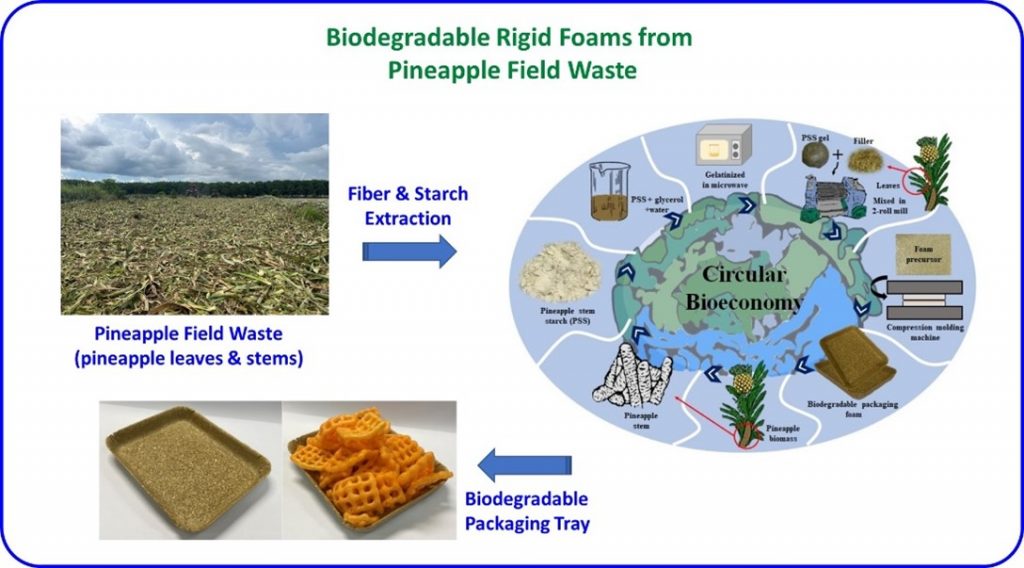Taweechai Amornsakchai
This study aimed to develop a biodegradable starch film using waste from pineapple stems as a substitute for non-biodegradable petroleum-based films in single-use applications that do not require high strength. High amylose starch extracted from pineapple stems served as the matrix, while glycerol and citric acid were added as additives to adjust the material’s ductility.
By varying the citric acid content from 0% to 15% by weight of the starch, a range of films with different mechanical properties was produced. With increased citric acid content, the films became softer and weaker, exhibiting greater elongation at the break. Mechanical properties spanned from a strength of approximately 21.5 MPa with 2.9% elongation to around 6.8 MPa with 35.7% elongation.
X-ray diffraction analysis confirmed the films’ semi-crystalline nature. They were also found to be water-resistant and suitable for heat-sealing. The study demonstrated the application of the film in a single-use package. Through a soil burial test, it was established that the material was biodegradable, fully decomposing into particles smaller than 1 mm within one month.

Reference: “Toward a Circular Bioeconomy: Exploring Pineapple Stem Starch Film as a Plastic Substitute in Single Use Applications”, Namphonsane, A., Suwannachat, P., Chia, C.H., Wongsagonsup, R., Smith, S.M., Amornsakchai, T., Membranes. 2023, 13, 458.
